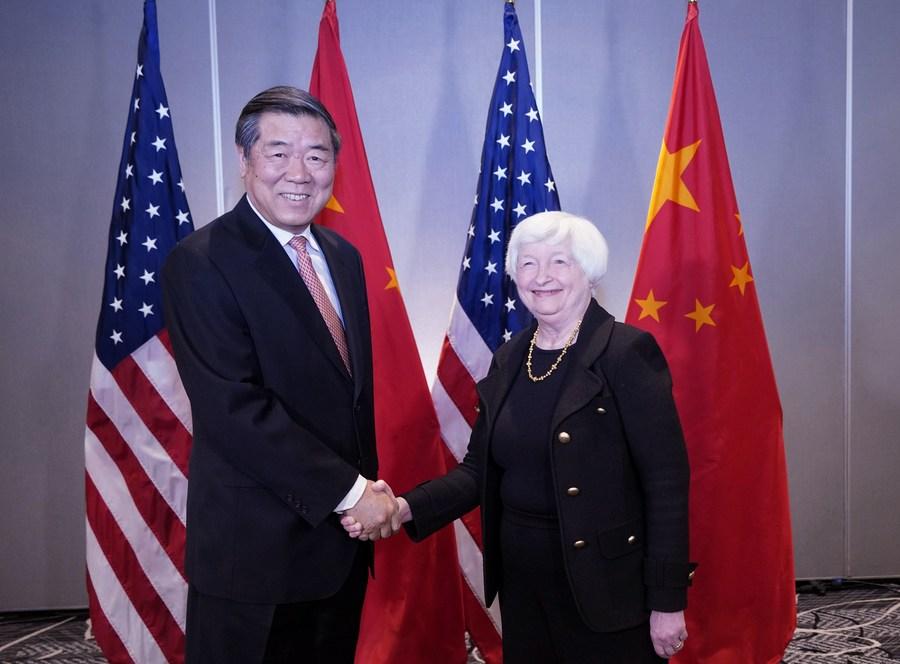
Chinese Vice-Premier He Lifeng, also the Chinese lead person for China-US economic and trade affairs, holds talks with US Secretary of Treasury Janet Yellen in San Francisco, California, the United States, Nov 9, 2023. [Photo/Xinhua]
This is an editorial from China Daily.
Briefing the press on the talks between Chinese Vice-Premier He Lifeng and United States Treasury Secretary Janet Yellen, Vice-Minister of Finance Liao Min highlighted the "three important consensuses" that had been reached: more communication, no "decoupling", and joint efforts to address common challenges. The talks, he said, were "candid, pragmatic, in-depth, and rich in constructiveness".
As she has done multiple times, Yellen said after the meeting that the US does "not seek to decouple our economy from China's". Washington is after "a healthy economic relationship with China that benefits both countries over time", she emphasized.
The He-Yellen talks have therefore set the stage for what it is hoped are productive talks between the two countries' leaders, who are expected to have in-depth face-to-face discussions in San Francisco with the aim of clarifying positions with a view to getting relations firmly back on to the track of "healthy, steady" development.
A lot has happened since the two leaders last met in-person in Bali, Indonesia, on the sidelines of the G20 Summit last November, with the balloon going up on the extent to which the hard-line anti-China caucus in Congress has been able to appropriate policy for their own ends.
The meeting between the two leaders will be held in tandem with the San Francisco APEC Economic Leaders' Meeting, which will focus on the region being "interconnected, innovative and inclusive" so as to create a resilient and sustainable future for all.
However, given US policy toward China at the moment that admirable agenda seems to be unrealistic. Present-day US efforts to realize US-centric supply chains are aimed at excluding China from the global industry and supply chains with the intention of severing economic interdependence and suppressing China's endogenous innovation.
Beijing is especially annoyed that, despite the verbal commitments to improve ties made by the US side in Bali, the US administration goaded by Congress has demonstrated worrisome "action deficits", and indeed has acted conversely. Following the 2022 move to block the exports of advanced microchips to China, the administration moved to choke US investment in key Chinese industries in August, making it no secret that its intention was to prevent Chinese technological advancement.
Thus instead of being portrayed as an "inflection point" from whence bilateral ties will show remarkable improvement, the two sides have prudently positioned the upcoming meeting as a stabilizing effort for the troubled relationship.
While that has kept expectations for the meeting to produce significant breakthroughs realistically low, it does not diminish the significance of the meeting as an opportunity to increase mutual understanding of the importance of preventing frictions sparking a mutually damaging confrontation.
Hopefully, the meeting between the two leaders can show real progress in that direction, applying the necessary touches to ensure the two countries are not on collision courses.

 中文
中文



